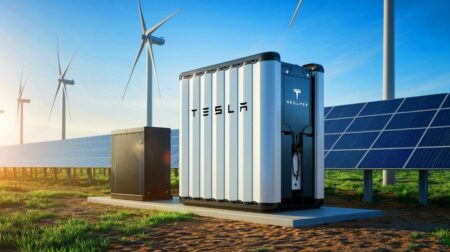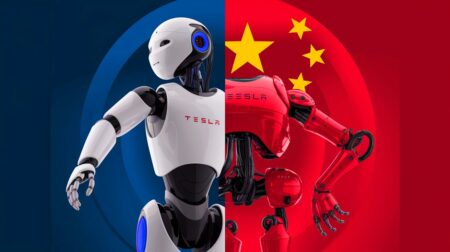| IN A NUTSHELL |
|
In an era where sustainability is becoming a cornerstone for industries worldwide, Panasonic Energy is taking a monumental step forward. By 2030, the company aims to integrate 20% recycled cathode material in its automotive batteries. This ambitious target is part of a broader initiative to create a sustainable, closed-loop battery recycling system. Collaborating with Sumitomo Metal Mining, Panasonic is pioneering efforts to make electric vehicle (EV) batteries more environmentally friendly. As the world shifts towards greener technologies, this initiative could play a pivotal role in reducing the environmental impact of battery production.
The Importance of Closed-loop Recycling
The collaboration between Panasonic Energy and Sumitomo Metal Mining is not merely a business venture; it is a groundbreaking initiative in the field of battery recycling. The focus is on recycling nickel from lithium-ion battery cathodes, transforming it into high-quality nickel sulfate. This process not only reduces the need for new raw materials but also enhances the sustainability of battery production. Closed-loop recycling is a system where end-of-life products are reprocessed into raw materials and reused in the same type of product. For Panasonic, this represents the first of its kind in automotive battery production, marking a significant milestone in sustainable manufacturing practices.
As the demand for electric vehicles increases, so does the need for effective recycling methods. With an anticipated surge in end-of-life batteries by 2030, creating a sustainable recycling scheme is crucial. This initiative aligns with the growing market demands and environmental considerations, showcasing Panasonic’s commitment to fostering a sustainable circular economy.
Declining Food Enjoyment in the U.S. and Its Impact on Health
High-quality Nickel Sulfate: A Crucial Component
One of the primary goals of this initiative is the production of high-quality nickel sulfate from battery scrap. The process begins at Panasonic Energy’s Osaka factory, where battery scrap serves as the raw material. Sumitomo Metal Mining extracts nickel from this scrap, transforming it into the nickel sulfate necessary for lithium-ion battery cathodes. This transformation is crucial as the cathode material significantly impacts a battery’s performance, including its energy storage capacity and stability.
With the rise of electric vehicle adoption, a sustainable source of refined nickel, cobalt, and lithium becomes imperative. As these materials are limited, recycling not only conserves resources but also supports the expansion of the EV market. As stated by Kazuo Tadanobu, CEO of Panasonic Energy, building a sustainable recycling scheme is essential for the future growth of electric vehicles. This initiative ensures that high-quality materials are continually cycled back into production, minimizing waste and environmental impact.
Expanding the Recycling Horizon
While the initial focus is on nickel, Panasonic’s recycling initiative is set to expand to include lithium and cobalt by 2026. The goal of using 20% recycled cathode material in automotive batteries by 2030 is a significant step towards a sustainable future. This “urban mining” approach not only reduces carbon dioxide emissions but also aligns with Panasonic’s goal to halve its carbon footprint by the fiscal year 2031.
The initiative establishes a closed-loop “battery-to-battery” recycling process, creating a self-sustaining cycle where resources are continuously looped back into the production process. This reduces waste and the need for raw material extraction, supporting Panasonic’s mission of fostering a sustainable society. Through this partnership with Sumitomo Metal Mining, Panasonic is accelerating efforts toward realizing a circular economy, advancing initiatives both in Japan and the U.S.
Industry-wide Implications
Sumitomo, with its extensive experience in recycling copper and nickel from lithium-ion batteries, plays a critical role in this initiative. The company’s expertise complements Panasonic’s vision of sustainable battery production. This collaboration is not an isolated effort. Other companies, like the US-based Re/cell, are also making strides in recycling used lithium-ion batteries. Re/cell recently announced the development of lithium-ion blocks made from recycled Tesla EV batteries, demonstrating the industry’s shift towards sustainability.
The efforts of Panasonic and Sumitomo, among others, highlight a transformative period in battery production and recycling. As companies invest in sustainable practices, the entire industry moves towards a future where environmental impact is significantly reduced. These initiatives not only benefit the companies involved but also pave the way for a more sustainable future, setting a precedent for others to follow.
As Panasonic and Sumitomo Metal Mining continue their groundbreaking work in battery recycling, the implications for the industry and the environment are profound. By establishing a closed-loop system, they are setting a new standard for sustainability in battery production. As more companies follow suit, one must wonder: will this be the catalyst for a global shift towards truly sustainable manufacturing practices?
Did you like it? 4.6/5 (23)








Wow, 20% recycled material by 2030? That’s ambitious! 🌟
Isn’t it a bit too optimistic to think they can hit 20% recycled content by 2030?